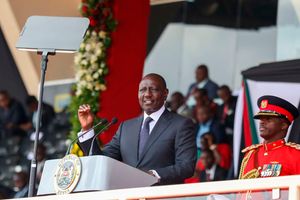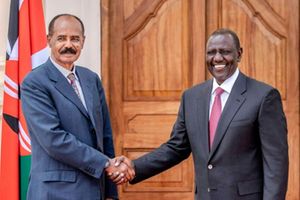Premium
Explainer: Privileges Kenya will enjoy as a Major Non-Nato Ally
This week's US designation of Kenya as a Major Non-Nato Ally is a significant vote of confidence in Kenya's military and defence cooperation.
But it doesn't elevate the relationship to a formal mutual defence pact.
This means that while the level of cooperation will be strengthened to include more US defence support for Kenya, the US will not be obliged to defend Kenya if it is attacked by a foreign entity.
Members of the North Atlantic Treaty Organisation (Nato) have both the legal obligation and the benefit of defending each other against a common enemy.
It is one of the world's oldest mutual defence organisations.
Accordingly, according to the US State Department, a Major Non-Nato Ally (MNNA) enjoys the following privileges:
- Eligible for loans of material, supplies or equipment for cooperative research, development, testing or evaluation.
- Eligible as a site for US war reserve stockpiles to be located on its territory outside US military facilities.
- May enter into agreements with the United States for the cooperative provision of training on a bilateral or multilateral basis, provided that the financial arrangements are reciprocal and provide for the reimbursement of all direct US costs.
- Eligible, to the maximum extent practicable, for priority delivery of surplus defence equipment transferred under Section 516 of the Foreign Assistance Act (if located on the southern or south-eastern flank of Nato).
- Eligible for consideration for the purchase of depleted uranium ammunition.
- Allows companies of a MNNA, as well as Nato countries, to bid on contracts for the maintenance, repair or overhaul of US Department of Defense equipment outside the United States.
- Allows funding for the procurement of explosives detection equipment and other counter-terrorism research and development projects under the auspices of the State Department's Technical Assistance Working Group.





